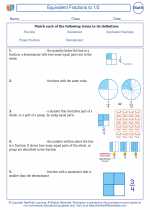Fractions Greater Than or Less Than 1/2 -> rational numbers
Rational Numbers
A rational number is any number that can be expressed as the quotient or fraction p/q of two integers, where q is not equal to zero. In other words, a rational number is a number that can be written in the form a/b, where a and b are integers and b is not equal to zero.
Rational numbers include integers, fractions, and terminating or repeating decimals. For example, 5, -3, 1/2, 0.75, and 0.333... are all rational numbers because they can be expressed as a quotient of two integers.
Rational numbers can be added, subtracted, multiplied, and divided just like whole numbers and fractions. The result of these operations will always be a rational number, making rational numbers a closed set under addition, subtraction, multiplication, and division.
It's important to note that not all numbers are rational. For example, the square root of 2 (√2) is an irrational number because it cannot be expressed as a fraction of two integers. Irrational numbers are non-repeating, non-terminating decimals and cannot be written as simple fractions.
In summary, rational numbers are a fundamental concept in mathematics and are essential for understanding arithmetic, algebra, and other branches of mathematics.
[Rational Numbers] Related Worksheets and Study Guides:
.◂Math Worksheets and Study Guides Second Grade. Fractions Greater Than or Less Than 1/2
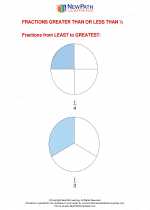
 Worksheet/Answer key
Worksheet/Answer key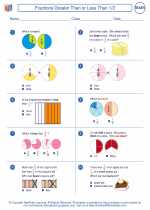
 Worksheet/Answer key
Worksheet/Answer key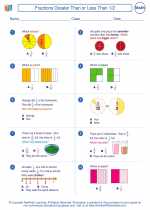
 Worksheet/Answer key
Worksheet/Answer key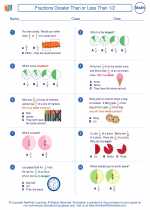
 Worksheet/Answer key
Worksheet/Answer key
 Worksheet/Answer key
Worksheet/Answer key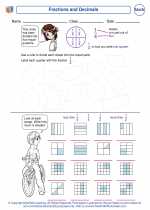
 Vocabulary/Answer key
Vocabulary/Answer key